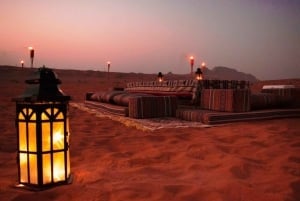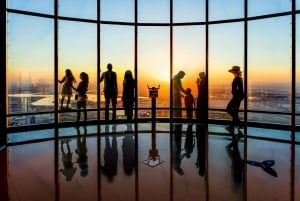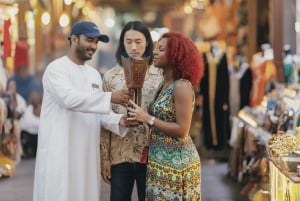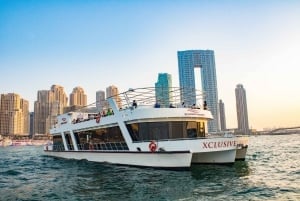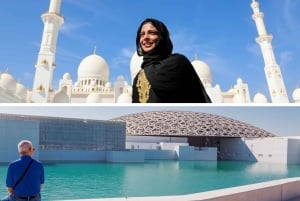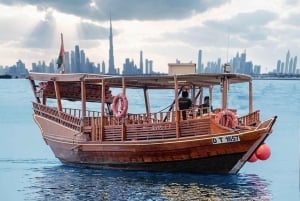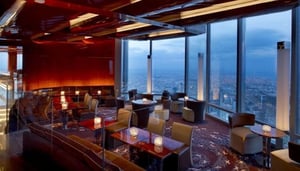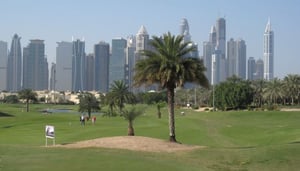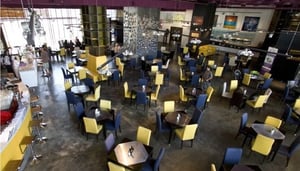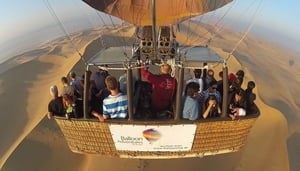Traveler Tips, Practical Information and Dos & Don'ts
The monetary unit is the Dirham - AED. A single Dirham is divided into 100 Fils. This currency is pegged to the US Dollar at a rate of AED 3.67 to USD 1. The US Dollar is accepted as a currency and form of payment in many outlets and hotels. All other major currencies can be exchanged at banks, exchange houses and hotels.
All major international credit cards are accepted in hotels, restaurants and shops, although some smaller retailers in the souks offer better bargains on cash transactions.
There are no restrictions on the amount of cash you may bring in to Dubai as a traveler, but be prepared to justify carrying large sums if questioned by the authorities.
Tipping practices in Dubai are slightly comparable to most places around the world to a certain degree. Hotel venues, including restaurants and cafes, typically include a service charge equal to 20% of the total bill value. Whereas tipping porters, bellmen and the concierge is a discretionary courtesy. Standard tipping practices are the norm in bars and nightclubs, although there is no set percentage on the bill. For luggage porters at airports a tip of AED 5 or AED 10 is standard depending on the amount of luggage a passenger carries. Taxis accept tips as well, but the value is left to your discretion. For most other services outside hotel venues, tipping is not conventional, so don’t feel like you have to whip out your wallet every time someone extends a kind gesture.
The UAE time is set at GMT +4 year round. The country does not observe daylight savings time (DST).
A work week runs from Sunday to Thursday. Friday and Saturday are official weekend days with Friday being a day of worship in Islam. During the work week, government offices and the public sector generally operate between 7 am and 2 pm. The private sector workday is usually 9 hour ranging between 7 am to 6 pm at the latest. Shopping malls and retail stores are open seven days a week with shops usually running from 10 am to 10 pm. Some shopping centres extend their hours until midnight on occasions.
Tap water comes from desalination plants and is safe to drink, but many people prefer to drink bottled water - mostly out of habit or uncertainty. A wide variety of bottled brands (both natural and carbonated) is available at supermarkets, convenience stores, newspaper stands and petrol stations.
Alcoholic beverages are served only in hotels and clubs, as well as venues designated for special events. Restaurants based outside of hotels are not permitted to serve alcoholic beverages. Dubai residents who are non-Muslim can obtain a liquor permit that allows them to purchase alcoholic beverages from dedicated outlets in the city.
Visitors have the option of purchasing alcohol upon arrival at Dubai Airport from the Duty Free shop. There is a quota that one is allowed to purchase upon arrival which is set at 5 alcoholic bottles per person.
The common voltage in use is 220-240, which is accessed via the traditional 3-pin wall plug. If you have an appliance with a standard North American or European 2-pin plug, an adapter will be required to operate it, which is often available at hotels and in supermarkets or petrol stations. Most accommodations are also pre-wired with dual voltage wall plugs in bathrooms which include 115v output for using your personal grooming appliances if you travel with these from your home country.
Health insurance is recommended for all travelers. In Dubai there are excellent hospitals with modern, state of the art facilities. However, costs are moderately high if you are not covered by health insurance. General practice and dental services are also of a high standard, but again, these may be expensive when compared to medical charges in Europe or North America. An initial consultation with a GP would cost approximately £50/$80/€60. Any tests or medication would be charged separately. There are a good number of pharmacies and many are open 24 hours a day. Prescription drugs are available over the counter, while supermarkets and convenience stores usually have a decent over-the-counter assortment for the standard everyday ailments.
Dubai is one of the safest cities in the world. In 2011, the number of reported criminal cases dropped by 8.5 % from the preceding year. Even though crimes often plague major metropolises in the world, they are a rarity in Dubai. The emirate enjoys a well-deserved reputation for being a mild-mannered city. Law enforcement responds adequately to calls when needed. There are stations or outposts located near major districts, while police patrols are often within a few minutes’ call away. However, as with any rapidly growing city, you are advised to keep vigilant as you go about your daily business. Not having crime is no reason to drop one’s guard, but that being said, chances of experiencing an incident are virtually negligible.
Islam is the official religion of the UAE, and inter-faith tolerance is a cornerstone of the UAE’s culture. Other religions are well represented with a great number of churches or temples spread across Dubai that accommodate worshippers from various beliefs.
Friday is a day of worship for practicing Muslims. Men and women come together at mosques for midday mass and prayer once a week. Usually, all non-essential business activities break just before this Friday gathering and reconvene either immediately after prayer concludes or later in the afternoon. Typically, small businesses and street shops will open much later in the day on Fridays. Shopping malls and tourist attractions observe normal working hours without exceptions.
If you are fortunate enough to visit during the holy month of Ramadan, there is another vibe in the city that is not experienced throughout the rest of the year. Get acquainted with what goes on in Dubai during this month. The end of Ramadan is marked by three days of festivities called Eid Al Fitr. Since Islam is based on the lunar calendar, the timing of Ramadan is not fixed annually in terms of the Gregorian calendar. It takes place 11 days earlier each year according to the lunar cycle, so you are better advised to check the relevant calendar before planning your journey.
Internet connections are readily available with many hotels and shopping centres offering free and fast Wi-Fi connectivity. Most cafes across the city also offer Wi-Fi connections to their patrons, so you can connect with your smartphone, tablet PC or laptop and catch the day’s news and top stories.
Calls to the UAE and Dubai
If calling the UAE from outside, the country dialling code is +971 (00971) followed by the respective emirate’s code and local number. Here is a simple reference chart:
| Dubai | +971 4 |
| Abu Dhabi | +971 2 |
| Ajman | +971 6 |
| Fujairah | +971 9 |
| Ras Al Khaimah | +971 7 |
| Sharjah | +971 6 |
| Umm Al Quwain | +971 6 |
Local Telecom Carriers
Etisalat and Du are the only two telecommunications providers in the UAE. Both have simple solutions for mobile cards which are widely used by residents and visitors. People intending on making more than a few local calls may find it more economical to purchase a pre-paid SIM card from one of these carriers. A SIM card can easily be slotted into your own personal mobile phone (or cell phone) during your stay in Dubai. Alternatively, you could buy an affordable telephone from the local market if you wish to keep your home unit separately. Customers need to bring a passport copy along with a copy of the tourist or residency visa when they purchase their SIM cards.
Mobile phone numbers begin with 050, 056 (Etisalat) or 055 (Du). To call a mobile telephone number in Dubai from anywhere within the UAE, dial the relevant 3-digit prefix followed by the 7-digit mobile number you wish to call (example: 055 123 4567). To call from abroad, dial the international access code +971, then the mobile prefix 50, 56 or 55 followed by the 7-digit telephone number. You will need to drop a ‘zero’ from the carrier’s prefix in order to properly place a call (example: 00971 56 123 4567). The same logic applies when calling landlines between emirates in the UAE. Suppose that a caller staying in Dubai wants to contact a person residing in Abu Dhabi on that recipient’s landline. The caller would dial the emirate’s prefix 02 followed by the 7-digit landline (example: 02 123 4567). Alternatively, the zero in the emirate’s prefix is dropped when the call is made using the international dialling code (example: +971 2 123 4567) even if it is placed from within the UAE.
- Respect the laws and values of the country. The UAE is built on generations of Islamic traditions that are firmly rooted in its culture and heritage. These traditions have been passed down from generation to generation and form the cornerstones of everyday life for Emiratis.
- Islamic religious values are greatly respected in the UAE. Showing any disrespect towards religious beliefs or practises is considered deeply offensive and very likely to be prosecuted.
- Alcohol consumption is allowed only by non-Muslims in licensed restaurants, pubs, clubs, private venues and at home (for residents who have acquired an alcohol license). For those living in the UAE, a special license must be obtained before purchasing alcohol from licensed stores.
- The UAE has a zero-tolerance policy towards drinking and driving. You can be charged and imprisoned if you are caught with any amount of alcohol in your system. This also applies to public drunkenness.
- Drugs are strictly forbidden. The penalties for drug trafficking, smuggling and possession of even residual amounts of drugs are severe, including drugs obtained for personal consumption.
- Sexual relationships outside of marriage are illegal, irrespective of any relationship you may have with your partner outside the UAE. Cohabiting is also illegal.
- Holding hands for married couples is tolerated in public, but other open displays of affection are considered offences against public decency. These are generally not tolerated.
- Offensive language, spitting and aggressive behaviour (including obscene hand gestures that might be tolerated elsewhere) are viewed very seriously and can result in imprisonment and deportation.
- Smoking is not allowed in government buildings, business offices and shopping malls. However, smoking is permitted in open public spaces, unless otherwise noted.
Police 999
Fire Brigade 997
Ambulance 998
Directory Enquiries/Phone Operator 181


